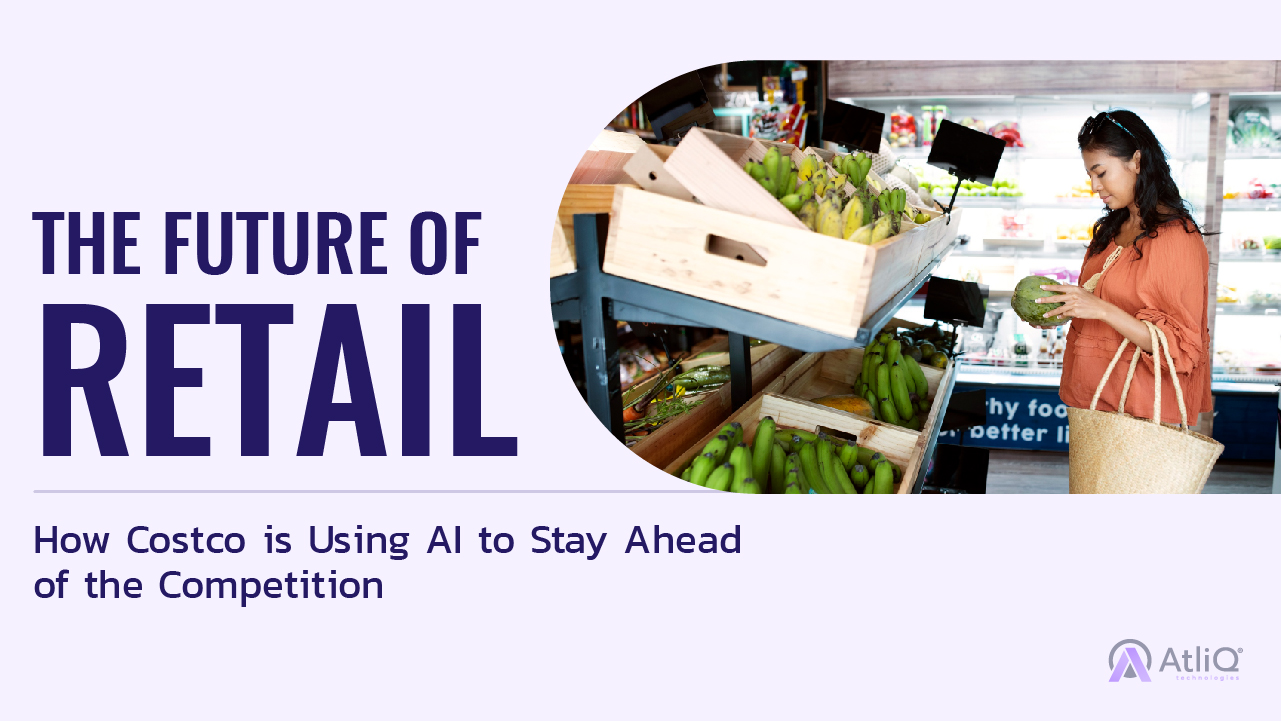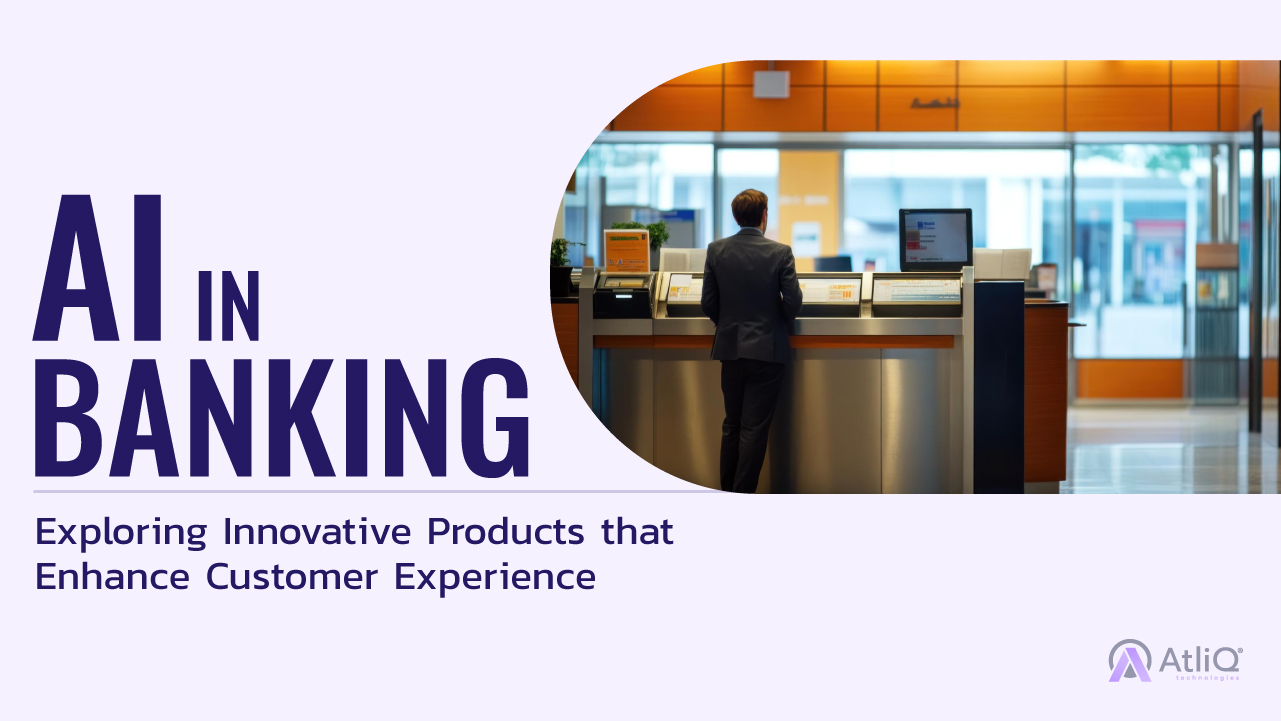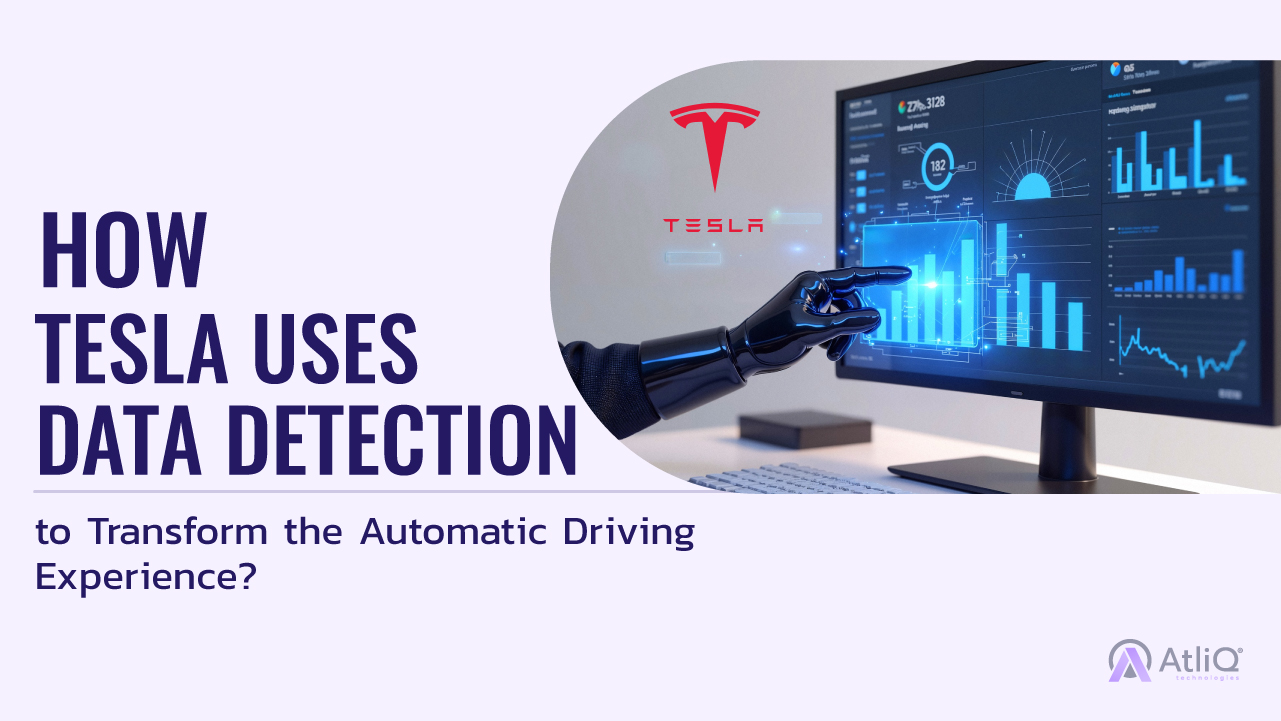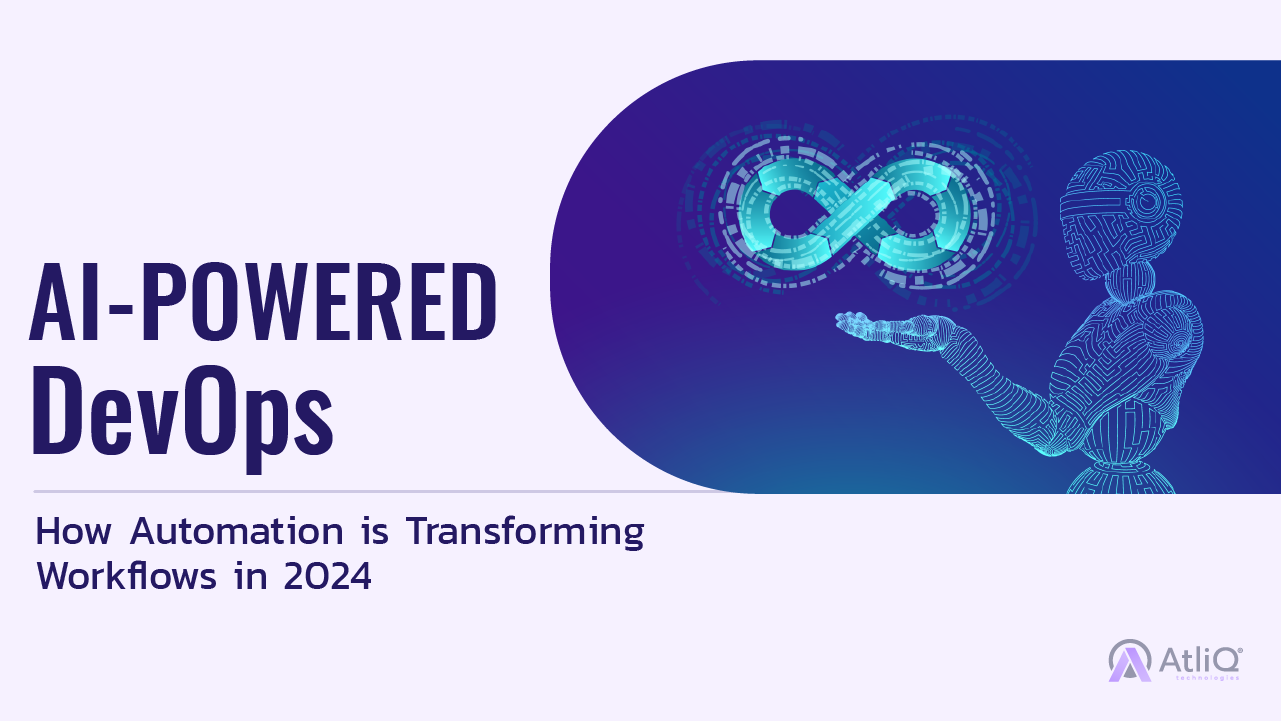
In today’s fast-paced digital landscape, the need for agile and efficient software development processes has never been more critical. DevOps, with its emphasis on continuous integration and continuous deployment (CI/CD), has revolutionized the way organizations build, test, and release software. However, as we move further into 2024, the integration of artificial intelligence (AI) into DevOps is poised to take these workflows to an unprecedented level of automation and efficiency. In this blog, we will explore the transformative potential of AI in DevOps, examining how it is set to automate workflows, enhance productivity, and redefine the future of software development.
Understanding DevOps
Definition of DevOps and Its Core Principles
DevOps, a portmanteau of “development” and “operations,” represents a cultural and professional movement that emphasizes collaboration, communication, and integration between software developers and IT operations teams. The primary goal of DevOps is to shorten the systems development life cycle while delivering features, fixes, and updates frequently in close alignment with business objectives.
The core principles of DevOps revolve around:
- Collaboration and Communication: Breaking down silos between development and operations teams to foster a culture of shared responsibility.
- Automation: Implementing automated processes to improve efficiency, reduce errors, and speed up development and deployment.
- Continuous Improvement: Constantly refining and optimizing processes, tools, and practices to enhance performance and adaptability.
- Customer-Centric Action: Ensuring that feedback loops are short and that customer feedback directly influences the development process.
- Infrastructure as Code (IaC): Managing and provisioning computing infrastructure through machine-readable definition files, rather than physical hardware configuration or interactive configuration tools.
Challenges Faced in Traditional DevOps Processes
Despite its many benefits, traditional DevOps faces several challenges:
- Complexity of Tools: The plethora of tools available for various stages of the DevOps lifecycle can be overwhelming. Integrating and managing these tools effectively requires significant expertise and resources.
- Cultural Resistance: Shifting from traditional development and operations practices to a DevOps culture can cause resistance. It requires a fundamental change in mindset, which can be difficult to achieve across large or established organizations.
- Skill Gaps: The successful implementation of DevOps practices requires a unique blend of development and operations skills. Finding and training personnel with the necessary skill set can be challenging.
- Security Concerns: Automating deployment processes and continuous delivery pipelines can introduce security risks if not managed properly. Ensuring security at every stage of the DevOps pipeline is critical but can be complex.
- Scalability Issues: As organizations grow, scaling DevOps practices to accommodate larger, more complex environments can be difficult. Ensuring that automated processes remain effective and efficient at scale is a significant challenge.
By understanding these core principles, components, and challenges, we can better appreciate how AI stands to revolutionize DevOps, addressing many of these pain points and paving the way for more efficient, reliable, and innovative workflows.
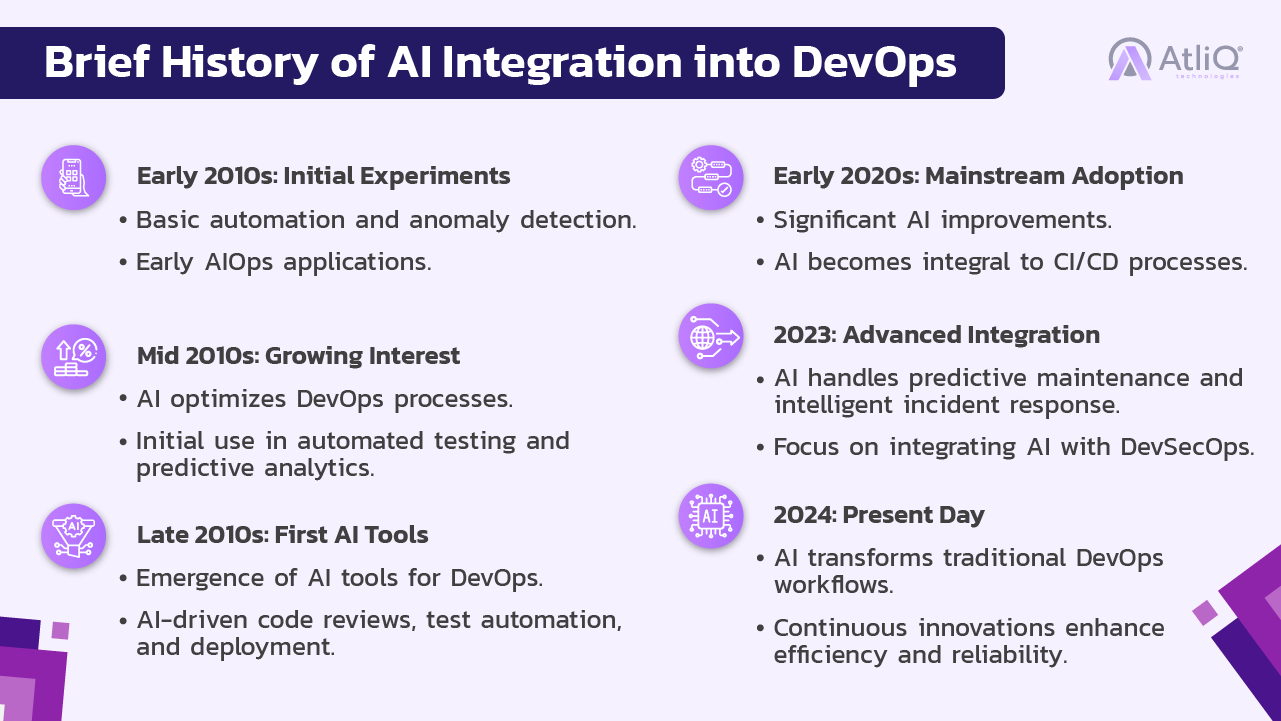
AI-Powered Automation in DevOps
As organizations seek to enhance their DevOps practices, the integration of artificial intelligence (AI) is emerging as a game-changer. AI-powered automation is transforming the way teams handle Continuous Integration (CI), Continuous Deployment (CD), and monitoring and feedback, making these processes more efficient, reliable, and intelligent.
How AI Enhances Continuous Integration (CI)
Automated Code Reviews and Testing
- Automated Code Reviews: AI tools can automatically review code for common issues, adherence to coding standards, and potential vulnerabilities. This speeds up the code review process and ensures higher code quality.
- Intelligent Testing: AI-driven testing tools can identify the most critical areas of code to test, optimizing test coverage and prioritizing tests that are most likely to uncover defects. This results in faster and more effective testing cycles.
Predictive Analytics for Building Success Rates
- Build Prediction: AI can analyze historical build data to predict the likelihood of a new build succeeding or failing. This allows teams to address potential issues before they occur, reducing build failures and increasing efficiency.
- Resource Optimization: By predicting build outcomes, AI helps in resource allocation, ensuring that computational resources are used optimally and build times are minimized.
AI in Continuous Deployment (CD)
Intelligent Deployment Strategies
- Adaptive Deployments: AI can develop and execute adaptive deployment strategies based on real-time data and historical performance. This includes determining the best times to deploy and the optimal methods (e.g., canary releases, and blue-green deployments) to minimize risk.
- Rollback Management: In case of deployment issues, AI can recommend or automatically initiate rollbacks, ensuring minimal disruption and quick recovery.
Reducing Downtime and Rollbacks Through Predictive Analytics
- Downtime Prediction: AI can predict potential downtime scenarios by analyzing system performance and usage patterns. This proactive approach allows teams to mitigate issues before they impact users.
- Rollback Minimization: Predictive analytics helps in identifying deployment scenarios that are likely to fail, allowing teams to refine deployments and reduce the need for rollbacks.
AI in Monitoring and Feedback
Anomaly Detection and Incident Prediction
- Proactive Monitoring: AI-powered monitoring tools can detect anomalies in real time, identifying unusual patterns that could indicate potential issues. This enables teams to address problems before they escalate.
- Incident Prediction: By analyzing historical incident data and system logs, AI can predict future incidents, allowing teams to take preventive actions and improve system reliability.
Automated Root Cause Analysis and Resolution
- Root Cause Analysis: AI tools can quickly analyze incidents and trace them back to their root causes. This accelerates the troubleshooting process and helps in faster resolution of issues.
- Self-Healing Systems: Advanced AI systems can not only identify the root causes of issues but also initiate automated responses to resolve them. This includes restarting services, applying patches, or reallocating resources to ensure system stability.
Benefits of AI-Driven DevOps Automation
The integration of AI into DevOps practices brings a multitude of benefits that streamline processes, enhance productivity, and improve overall system performance.
Increased Efficiency & Reduced Manual Intervention
- Automated Processes: AI automates repetitive tasks such as code reviews, testing, and deployment, freeing up human resources to focus on more complex and creative tasks. This leads to significant time savings and increased productivity.
- Resource Optimization: AI tools can predict resource needs and optimize their allocation, ensuring that computing power is used efficiently and reducing waste. This not only saves costs but also enhances system performance.
- Error Reduction: By automating routine tasks, AI minimizes the risk of human error, leading to more consistent and reliable outcomes. This enhances the overall quality of the software development process.
Faster Time to Market with Continuous Delivery
- Accelerated Development Cycles: AI-powered automation streamlines the entire CI/CD pipeline, from code integration to deployment. This results in shorter development cycles and quicker delivery of new features and updates to the market.
- Real-Time Feedback: AI tools provide real-time feedback on code quality, performance, and potential issues, enabling faster iterations and improvements. This agility helps organizations respond more swiftly to market demands and user feedback.
- Optimized Release Strategies: AI can develop and execute intelligent deployment strategies, such as canary releases or blue-green deployments, ensuring that new releases are delivered smoothly and with minimal risk. This reduces downtime and enhances user satisfaction.
Improved Reliability & Stability of Applications
- Proactive Monitoring: AI-driven monitoring tools continuously analyze system performance and detect anomalies in real-time. This proactive approach allows teams to address potential issues before they impact users, ensuring higher system reliability.
- Predictive Maintenance: AI can predict potential failures and maintenance needs by analyzing historical data and usage patterns. This enables teams to perform maintenance activities proactively, reducing the likelihood of unexpected outages and improving system stability.
- Automated Incident Response: In the event of an incident, AI can quickly analyze the situation, identify the root cause, and initiate automated responses to resolve the issue. This reduces downtime and ensures that systems are restored to normal operation as quickly as possible.
Enhanced Security Through Automated Threat Detection and Response
- Continuous Security Monitoring: AI tools continuously monitor systems for security threats and vulnerabilities. By analyzing patterns and behaviors, AI can detect potential security breaches in real time and alert the relevant teams.
- Automated Threat Response: AI can initiate automated responses to detected threats, such as isolating affected systems, applying patches, or blocking malicious activities. This rapid response capability significantly reduces the potential impact of security incidents.
- Risk Mitigation: AI can assess the security posture of systems and predict potential risks based on historical data and emerging threat patterns. This allows organizations to take preemptive measures to mitigate risks and enhance overall security.
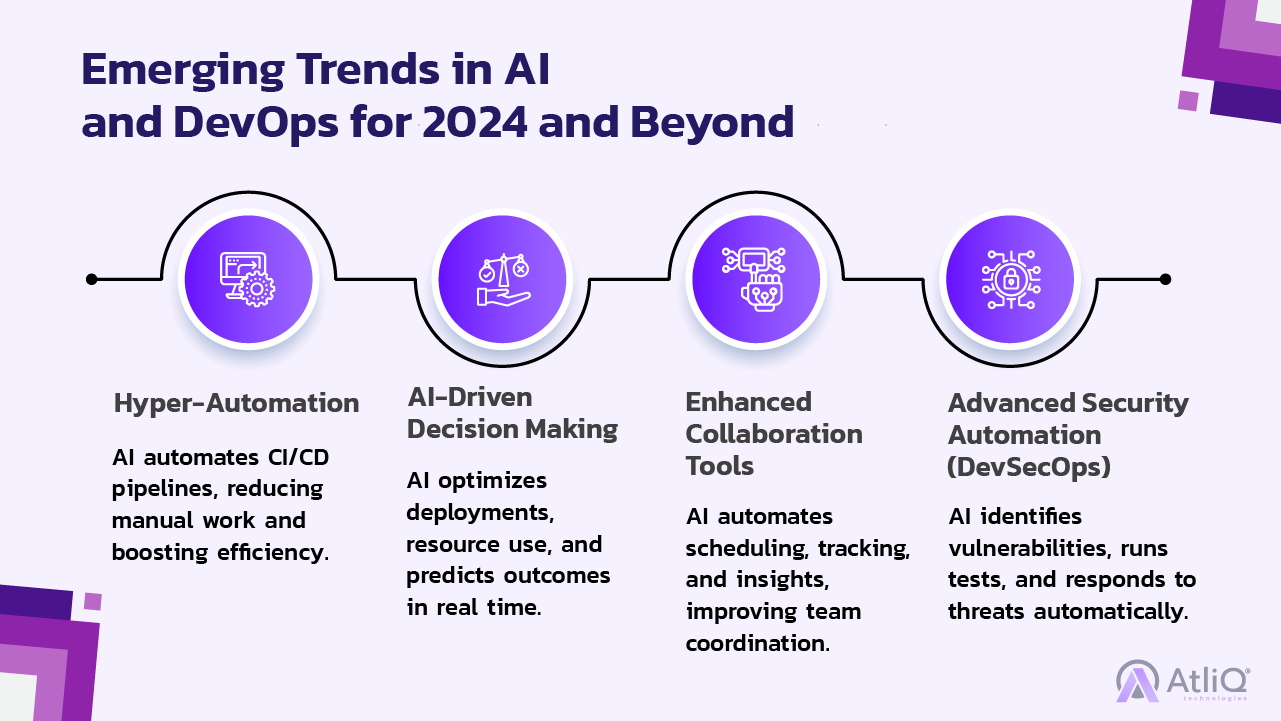
Predictions on How AI Will Further Transform DevOps
- Autonomous DevOps: AI advancements will lead to the creation of autonomous DevOps systems capable of self-managing and self-optimizing without human intervention. These systems will use AI to continuously learn and adapt, ensuring optimal performance and reliability.
- Predictive Analytics as a Standard Practice: Predictive analytics will become a standard practice in DevOps. AI will predict future trends, potential system failures, and user behavior, allowing teams to proactively address issues and optimize performance.
- Enhanced User Experience (UX): AI will play a significant role in enhancing UX by providing personalized experiences, predicting user needs, and ensuring that applications are always available and performant. This will lead to higher user satisfaction and retention rates.
- Integration with Business Processes: AI in DevOps will increasingly integrate with broader business processes, providing insights that help organizations make strategic decisions. This includes aligning IT operations with business goals, optimizing costs, and improving overall efficiency.
The Role of Emerging Technologies like Edge Computing and IoT in AI-Driven DevOps
- Edge Computing: Edge computing brings computation and data storage closer to the location where it is needed, reducing latency and improving performance. In AI-driven DevOps, edge computing will enable faster data processing and real-time analytics, allowing for more responsive and efficient systems.
- Internet of Things (IoT): The proliferation of IoT devices generates massive amounts of data that need to be processed and analyzed. AI-driven DevOps will leverage this data to optimize application performance, enhance security, and provide real-time insights. IoT and AI will work together to create smarter, more adaptive systems.
- Distributed AI Systems: With the rise of edge computing and IoT, AI systems will become more distributed, processing data locally on devices rather than relying solely on centralized cloud resources. This will enable real-time decision-making and reduce the strain on network infrastructure.
- Enhanced Monitoring & Maintenance: Edge computing and IoT will enhance monitoring and maintenance processes. AI can analyze data from edge devices to predict maintenance needs, detect anomalies, and optimize performance, ensuring that systems remain reliable and efficient.
The future of AI-driven DevOps is bright, with emerging trends and technologies set to revolutionize the field. Hyper-automation, AI-driven decision-making, advanced collaboration tools, and enhanced security automation are just the beginning. As AI continues to evolve, it will lead to the development of autonomous DevOps systems, predictive analytics, and improved user experiences. Additionally, the integration of edge computing and IoT will further enhance the capabilities of AI-driven DevOps, providing real-time insights and optimized performance. Organizations that embrace these trends and technologies will be well-positioned to stay ahead in the competitive landscape of software development and operations.
